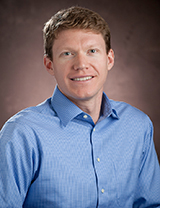News @ Georgia Law May 2014 Faculty Profile

Name: Timothy Meyer
Title: Assistant Professor of Law
Hometown: Chappaqua, New York
Law School/Graduation year: University of California, Berkeley / 2006
Other Degrees/Institutions: B.A. and M.A. in History / Stanford University; Ph.D. in Jurisprudence / University of California, Berkeley
1. What influenced your decision to go to law school?
My dad is a lawyer and when I was little I was sure I would be too. By the time I got to high school, I was certain I wouldn’t be. After college, though, I went to grad school and began to realize that all of the issues I was interested in had legal dimensions. The more I thought about it, the more it seemed like a career in law would be one that would always be opening new doors and new issues to explore. So I ended up back where I started.
2. What did you do before entering the legal teaching academy?
I was a lawyer for the State Department, clerked for the Honorable Neil M. Gorsuch of the U.S. Court of Appeals for the 10th Circuit, and did a Ph.D. at the University of California, Berkeley. At the State Department, I handled a range of diplomatic law negotiations with foreign governments as well as commercial transactions and arbitrations related to U.S. government-owned real estate (e.g., embassies, military bases) overseas.
3. What made you decide to become a professor?
I’ve always loved universities. I love the creative aspects of writing, and I love designing a research program that tries to figure out why the law and legal institutions are organized the way they are, as well as how they could be organized more effectively. I loved practicing law too, but after a few years I felt that I spent all my time reacting to breaking issues. I wanted to spend more time being proactive about investigating legal issues.
4. What do you enjoy most about your job? What is the most rewarding aspect of being a professor?
I teach international law, which is a subject that a lot of students don’t necessarily think of as “law” in the same way they think of contracts or constitutional law. I love exploding that preconception. International law exposes a lot of really basic issues in law that are taken for granted in other subjects. When you read Marbury v. Madison in constitutional law, students often take for granted the outcome of the story, which is courts get to say what the law is. But a lot of international tribunals, like the World Trade Organization’s appellate body, are still negotiating those basic issues of institutional role and institutional legitimacy. Studying the WTO thus gives us a lot of insight into how legal regimes, domestic and international, form and why they succeed or fail. Students also often do not realize how much business and economic relations in particular are influenced by international legal rules and norms.
5. What type of influence do you hope to have on your students?
I hope they leave my classes thinking critically about how to use legal reasoning to produce better outcomes, and I hope they develop a set of skills that will serve them well in their careers. I like to emphasize both writing skills and critical, but respectful, verbal engagement with each other. These skills are so important to success in the workplace but can be overlooked in large classes driven by a final exam.
6. You currently teach several courses. Which one is your favorite to teach and why?
International Trade Law is my favorite class. In a lot of ways the class is a story about how you build a legal system with judicial review from scratch. The class is also in some ways a story about how legal regulation starts with economic concerns, but then slowly expands to cover other issues, like environmental, health, and rights-based concerns. That arc is generalizable to lots of legal systems.
7. What is one of the greatest challenges facing that area of the law today?
The creation of new law in the World Trade Organization and its predecessor, the GATT, was largely driven by negotiations among the parties. The low hanging fruit is all gone now, and so the parties are having a hard time making forward progress on greater economic integration. They are also struggling with how to reconcile priorities that may compete with liberalizing trade, such as environmental protection or health and safety concerns. In some ways, whether the WTO becomes primarily a dispute resolution forum, or whether it remains a negotiating forum for resolving new and outstanding issues, is up in the air.
8. Are you currently conducting any research? If so, what is its focus?
My current research focuses the processes through which nations make international law. The procedural aspects of international lawmaking are often overlooked, but international negotiations are governed by process in the same way that negotiations among legislators in Congress are. My current work tries to expose the key role that process and different kinds of legal instruments play in determining legal outcomes. I am also researching the effect of the World Trade Organization’s rules on domestic energy governance.
9. What is your favorite thing about living in Athens?
I love the scale of the town. When I moved to Athens from Washington, D.C., my day got two hours longer. At the same time, I don’t feel like I gave up much in the way of culture. Athens has fantastic restaurants, great music, great weather and nothing is more than 10 minutes away!
10. What do you enjoy doing in your free time? What are your hobbies?
Running, playing tennis, and reading novels.
11. What do you consider your greatest accomplishment in life?
Raising my two boys. Nothing has changed how I see the world and my place in it more than having children.
